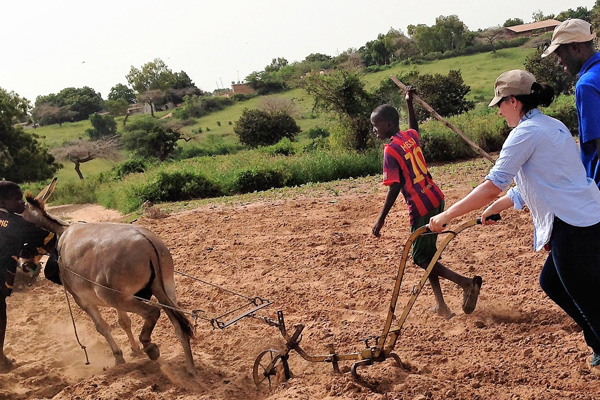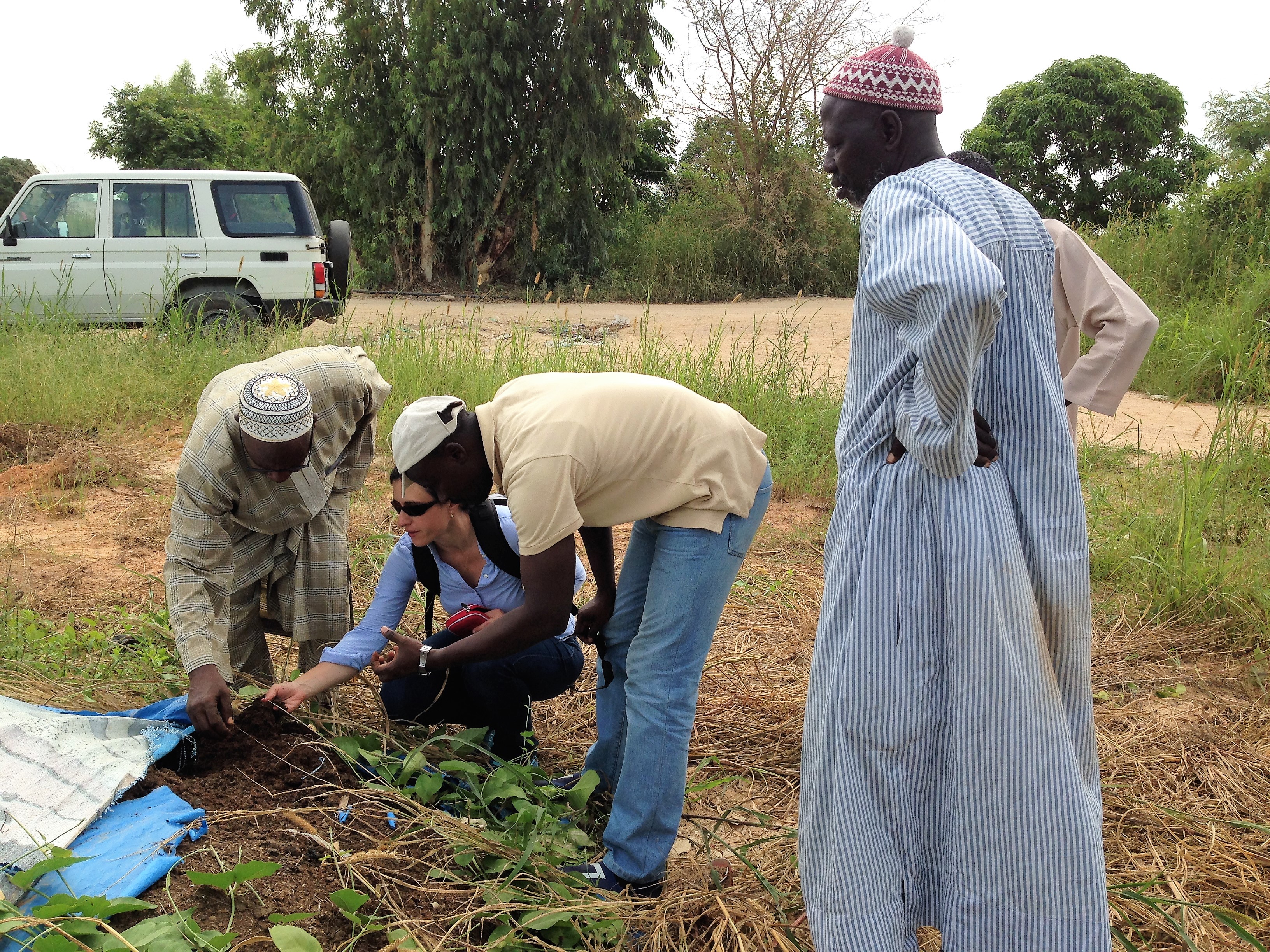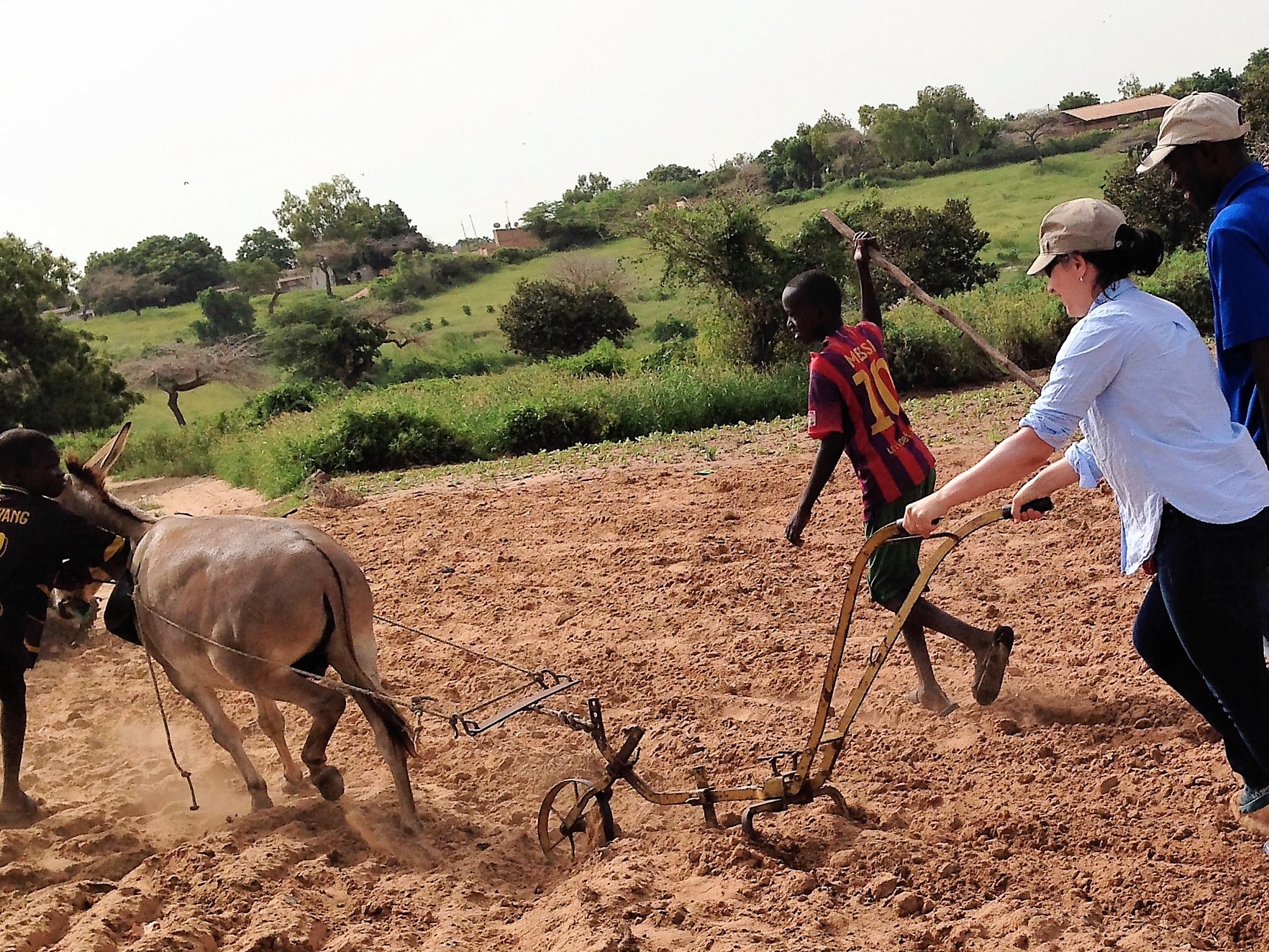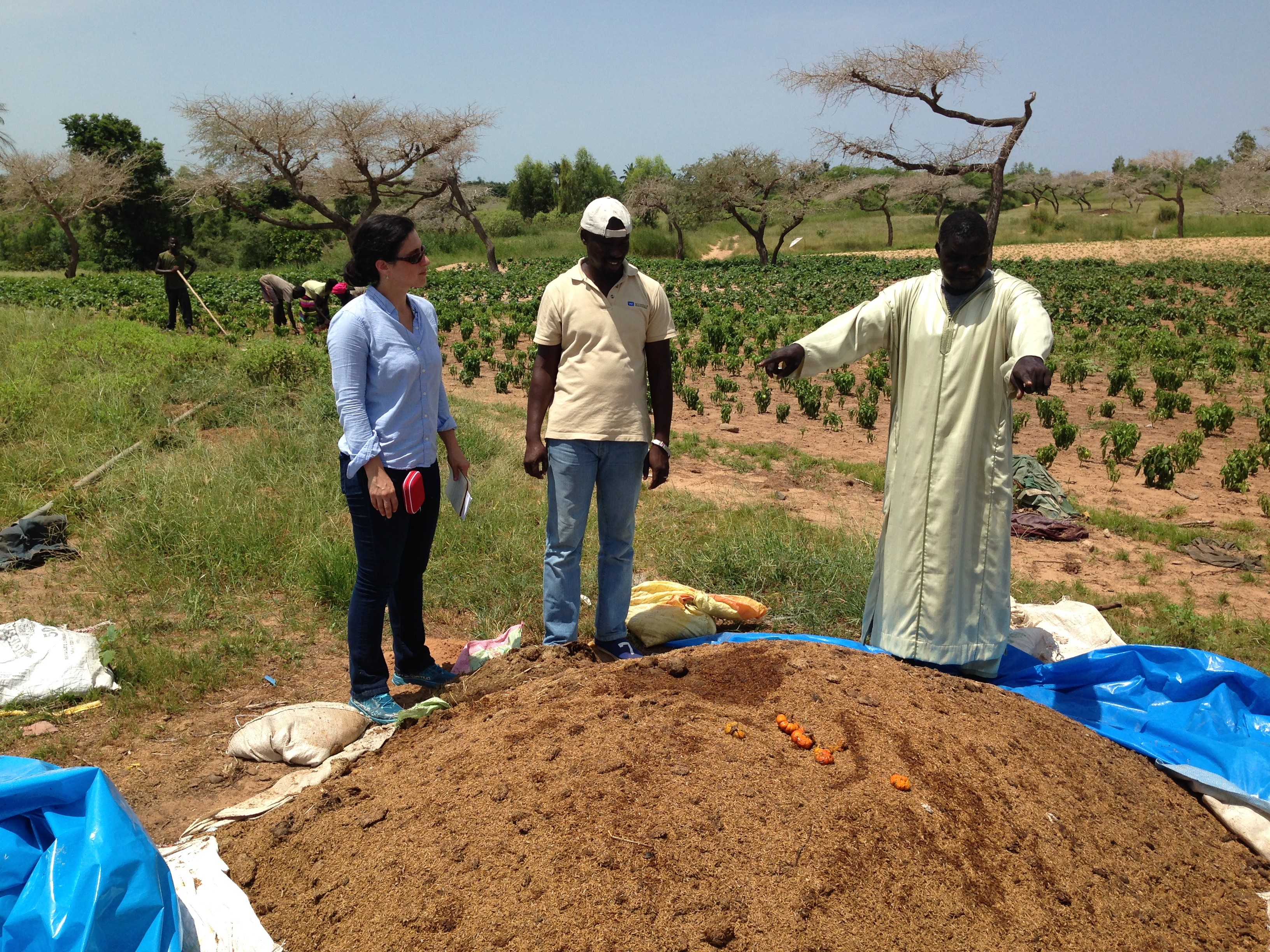
Volunteer Post
Agroecology in Africa: Focus on Soil Stewardship in Senegal
Making ecosystems economically viable, socially just and environmentally conscious.
Rachel E. Schattman, Farmer-to-Farmer Volunteer
This week’s blog comes from Farmer-to-Farmer (F2F) volunteer, Rachel Schattman, a Produce Safety Specialist with the University of Vermont and a post-doctoral fellow with the USDA Northeast Climate Hub. She has worked in agriculture for 19 years, either as a farm worker, farm owner or extension specialist.
I have been working in agriculture, either as a farm worker, farm owner, or Extension specialist for 19 years. Recently, I volunteered with Winrock International in Senegal. I accepted the assignment because I was eager to see how farmers in other parts of the world ran their businesses. I was especially excited to see how people grow crops similar to those I am familiar with in a very different climate and soil type.
I volunteered in the Theis region of Senegal, which spans the coastal area between the national capital of Dakar and the colonial city of Saint Louis. In this region, several thousand vegetable farmers grow a diverse range of crops including peanuts, cabbage, eggplant, tomatoes, cassava, and many more. Many farms belong to cooperatives, and these cooperatives are often federated under a single entity.
One such federated co-op, the Coastline Vegetable Producers Union (UML), has a leadership that works diligently to promote the interests of its members. For example, in recent years, they have attracted international funding for an onion drying facility which allows for some members to export onions for the first time. Since 2015, they have partnered with Winrock International to bring agricultural experts to Mboro to train co-op members on agro-ecological practices. I was fortunate to be the third volunteer brought in by Winrock to work with UML. As part of my assignment, I was asked to develop and give a 5-day workshop, to share what I know with the remarkable farmers of UML and I took the opportunity to learn from them in turn.

I began my volunteer period in mid-September, 2017 with two-days of field visits. On the first day, Winrock field staff Saliou Ndiaye, Ndiame Sene and I met with the President of UML, Soyibou Diaw, at UML headquarters in Mboro. The secretary of UML, Abdoul Aziz Sow, as well as several other members were also present for our discussion on the assignment and some common practices that I would likely see on our field visits. We then visited the farms of two members of UML located near Mboro (Soyibou Diaw, the President of UML, and Galaye Samb, another UML member) Both farmers showed our team the compost they had made following a previous Winrock training, and were eager to discuss how they were applying compost to their fields as well as the challenges they faced.
On the second day, we visited three farms in Joro, north of Mboro by 30km. Our hosts were kind enough to let me try my hand at tilling with a donkey, which was a first for me. Several plots that we observed were on significant slopes and we observed soil erosion related to rainfall and irrigation. Efforts to mitigate the erosion included redirecting water flow through hand-dug trenches. It was clear from these two sets of visits that the farmers of UML are driven by a desire to improve their production practices, and eager to experiment with new growing techniques.

After the visits, Saliou and I worked together to develop and translate a 5-day training course on soil health and nutrient management based on my observations from the fields and UML’s training requests. Approximately 30 UML members attended the course, which was held in the Mboro town hall. We started the week by covering 5-principles of ecological agriculture: (1) recycling biomass, (2) managing organic matter, (3) keeping nutrients in place, (4) diversification, and (5) synergy. Each principle was accompanied by examples of on-farm management approaches. In response to questions posed by UML participants, we also discussed the specific nutrient needs of crops grown on their farms, how to calculate the nutrient amounts in purchased fertilizer, and a comparison of nutrient amounts contained in a variety of fertilizers (including compost).
Participants practiced calculating nitrogen (N), potassium (P), and phosphorus (K) concentrations in fertilizer mixes based on the weight of the bag and percentage content in the fertilizer mix. I brought with me a home soil test kit and refill pack to use as a demonstration and to leave with UML. In the last lecture of the workshop series, I showed how the coast of Senegal around Theis is already impaired by nitrogen and phosphorus runoff, and we discussed the importance of not over fertilizing for the protection of coastal areas.
I hope that the workshop provided useful and usable information to the UML farmers. As a volunteer, the experience of working with UML and Winrock was extremely valuable to me. Having only conducted extension and education in the USA, this assignment allowed me to work with growers in a completely different economic, ecological, and social context. It was a challenging and exciting exercise that forced me to return to the basic principles of agro-ecological agriculture, and apply it to an area that is almost the opposite of where I am from, in terms of soil characteristics and climate. I was impressed and humbled by the UML farmers; there were several farmers, with whom I spoke at length, willing to try new practices, even in the face of a prevailing social pressure to maintain the status quo. The excitement and enthusiasm of the UML farmers is very contagious.

I was very fortunate to work with a skilled professional, Saliou Ndiaye, who not only provided language translation, but also helped me to understand the social norms and expectations of the farmers and their communities. An agricultural professional himself, Saliou was able to help me distill key topics (such as soil pH, and cation exchange capacity) into terms farmers understood easily. Beyond the trainings, my time with Saliou and other members of the Winrock team in Senegal helped me to develop a deep appreciation of Senegalese culture, embodied in their teranga (hospitality) and generosity. I have a deep appreciation for the Dakar-based Winrock team, and I thank them for making this assignment a truly excellent experience.
